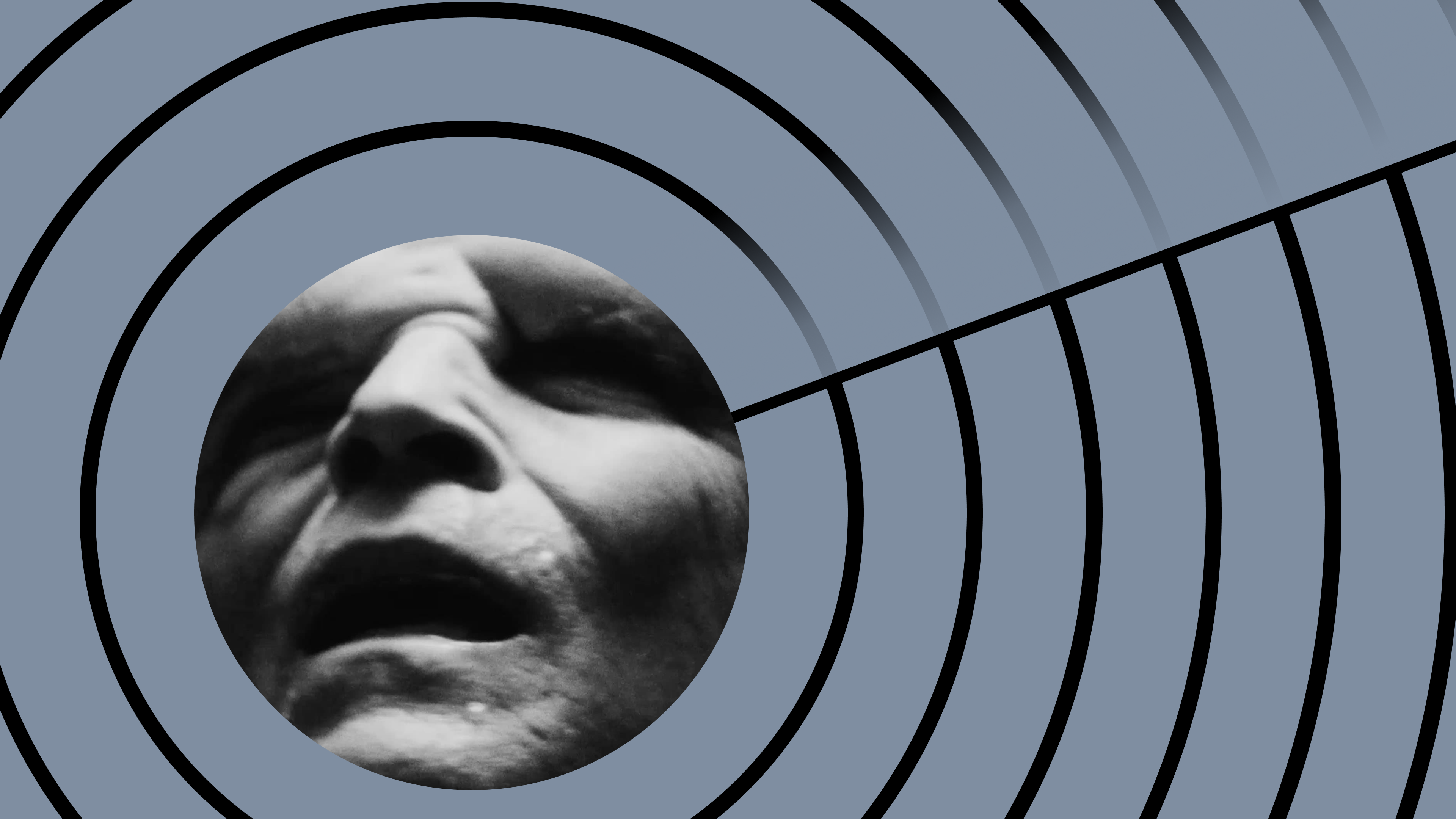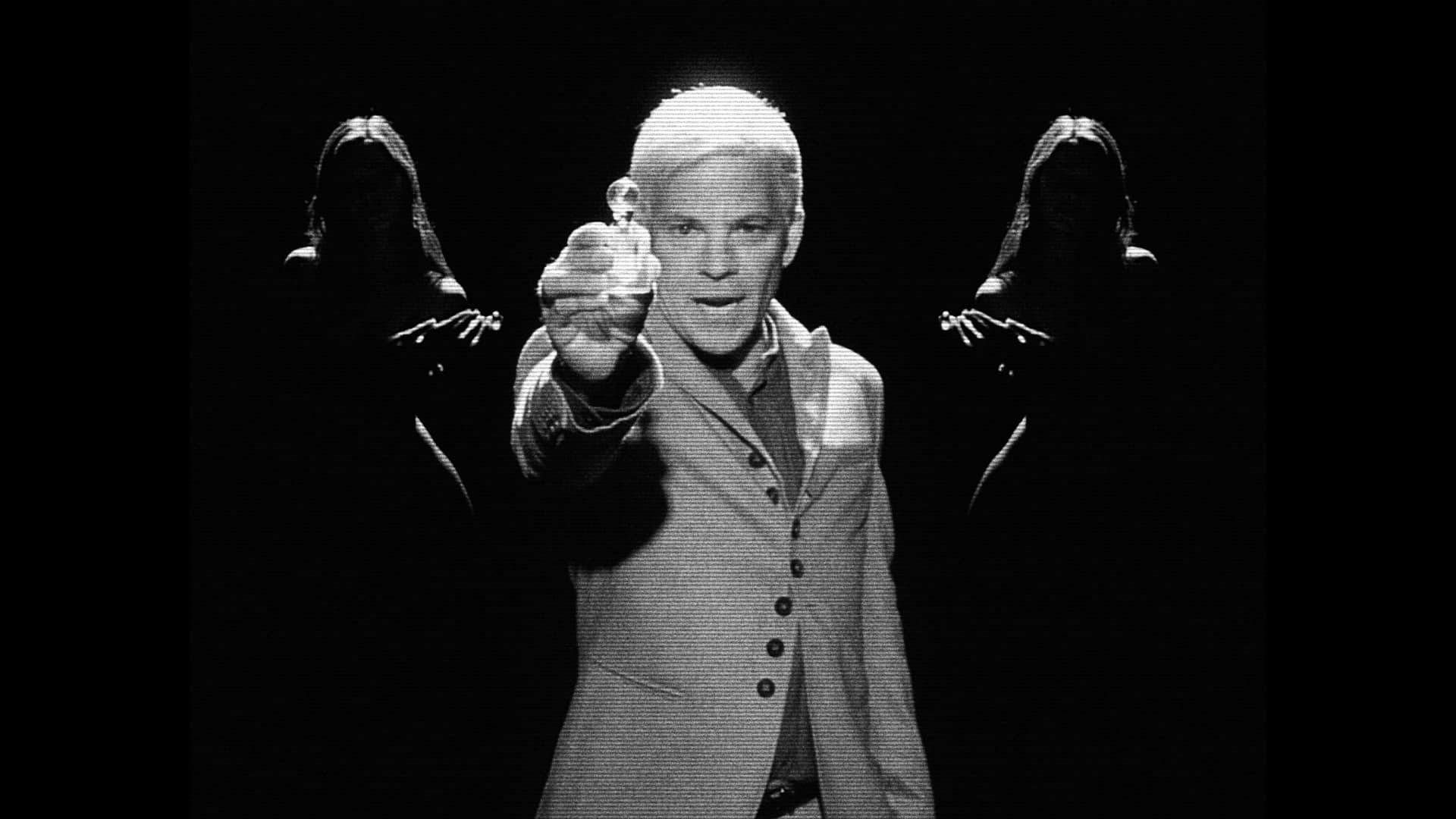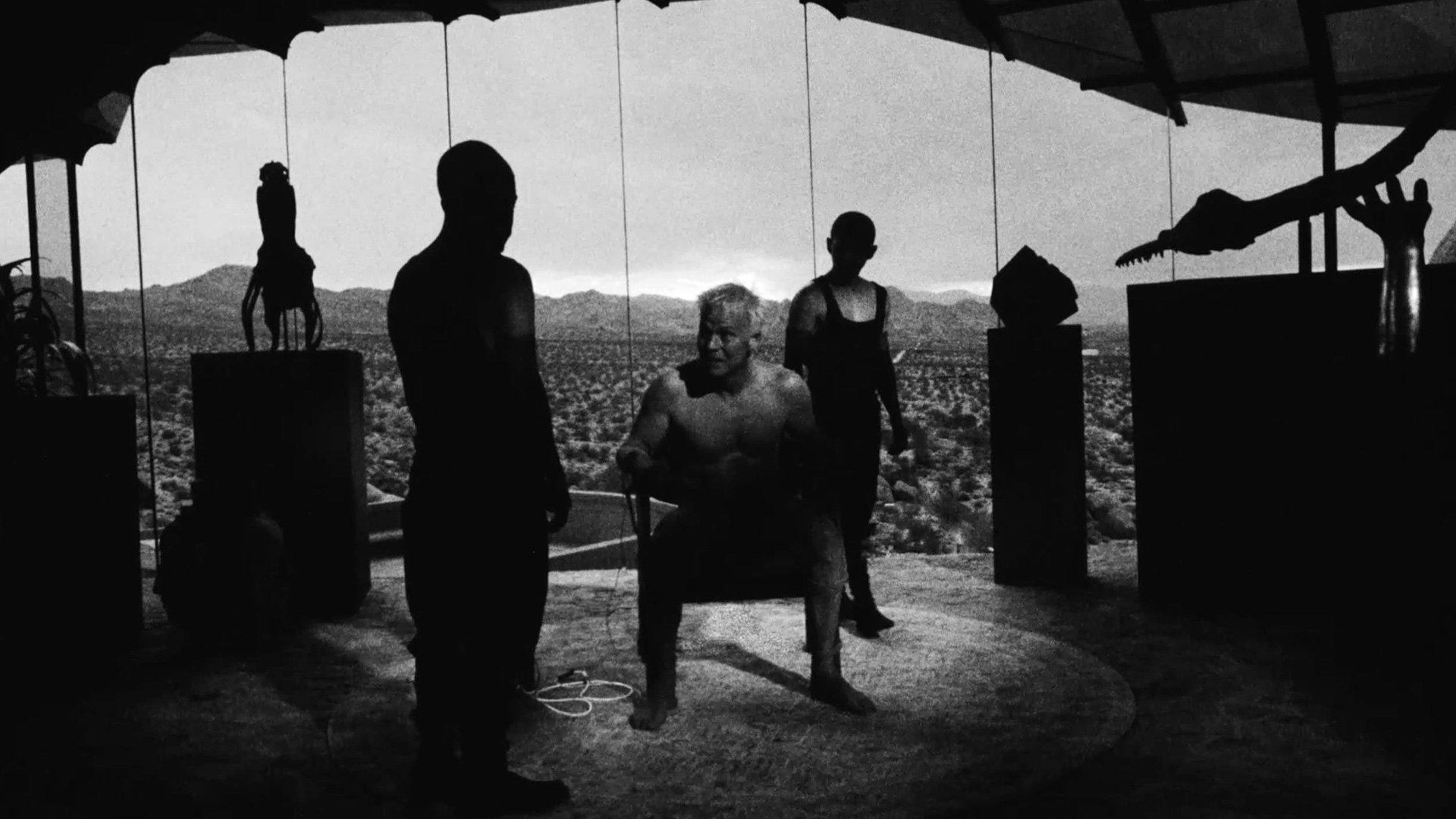Off the Radar: Esoteric sci-fi Divinity is a wholly original beast

Sick of streaming services recommending you the same kind of stuff? Liam Maguren’s Off the Radar column highlights strange, unique, gimmicky, semi-indescribable titles worthy of your attention. Here, he explores esoteric sci-fi Divinity.
Coming hot off the film festival circuit, armed with the coveted words “Steven Soderbergh Presents” on its poster, writer-director Eddie Alcazar’s Divinity currently dances the thin line between ‘rotten’ and ‘fresh’ on Rotten Tomatoes. For a divisive, esoteric film like this—one that’s less concerned about who it’s appealing to and more devoted to what it wants to be—it’s a perfect score.
The surreal sci-fi story revolves around two mysterious, oddly synchronised brothers (Jason Genao & Moises Arias) journeying across a plant-less, desert-heavy future Earth where the miracle of immortality combines disastrously with the destructive nature of capitalism. Coming at the cost of pretty much everything else, the titular age reverser turns men into muscle giants and women into slender figures for the male gaze—a real hetero hellscape. Out on a mission, the brothers capture the creator of this bottled Fountain of Youth (Stephen Dorff), presumably for turning the world into a wasteland filled with ‘roided Love Island contestants, to give him a humungous taste of his own medicine, only for all hell to break loose.
The plot’s out there, to say the least, showcased through a distinct visual direction that makes the most of grainy black-n-white cinematography, Blade Runner-esque future-retro aesthetic touches, and an almost otherworldly architectural combo of Art Deco and Brutalism. Nostalgia’s clearly at play here, but by mish-mashing elements from different decades, Divinity becomes a wholly original beast, feeling slightly—and oh so deliciously—beyond time. It’s certainly a case of style over substance, which is usually a negative, but when the style’s this thick, and the running time this brief (flirting with the sweet 90-minute mark), it’s a lot easier to give yourself over to the experience.

Rounded off with purposely stilted performances and an electronic-heavy score by Dean Hurley and DJ Muggs, Divinity positively explodes with the energy of a particular kind of B-movie—one that throws caution to the wind, acid on the tongue, and audiences into a completely different universe. It feels like the kind low-budget production the late, great Roger Corman would throw money at, offering a hungry filmmaker to do whatever they want as long as the film had blood and titties in there for the cheap seats (which the film has a tasteful amount of).
A lot of modern sci-fi blockbusters will take the coward’s way out of immersing the audience in a strange new world by front-loading the dialogue with ironic jokes and winks to the camera. As if to say: “Yeah, we know this looks silly, ain’t we a hoot?” Not Divinity. It’s as serious as a cage fight about its rambunctious realm with its ultra-mood approach to lighting, smart use of locations, and adoration for practical effects.

Oddly enough, Alcazar’s clear love for this world and techniques used to give it life isn’t present for the film’s central love story. Sex worker Nikita (Karrueche Tran), who’s as close to an audience avatar as you’ll get, feels like a largely wasted character caught in an intriguing love triangle that teases tension that never ignites. At least it plays into the film’s appropriately whack-a-doodle ending.
To say the climax loses its mind would assume Divinity had its mind straight from the beginning. But it doesn’t; that’s part of the film’s appeal. Still, the final fight hinges on a creative decision so daring, it will take most people by surprise. It may prove too much for some, but it also had me envisioning the film fest crowds going wild for what it chooses to do—and wishing I could have pumped my fist alongside them.



















